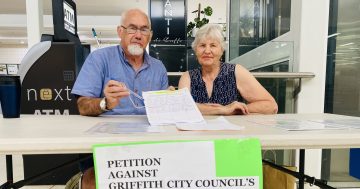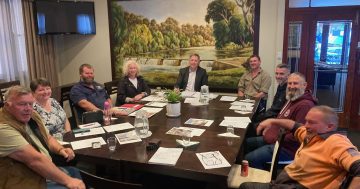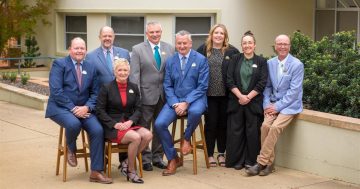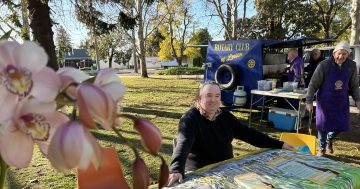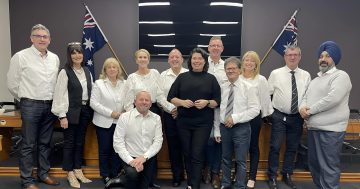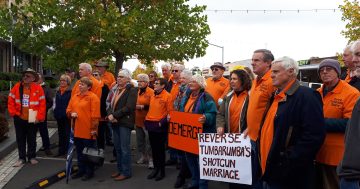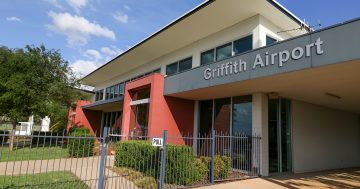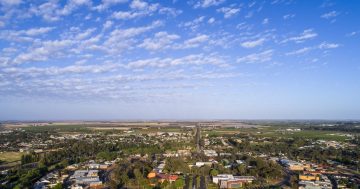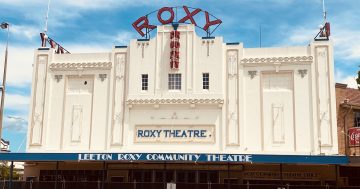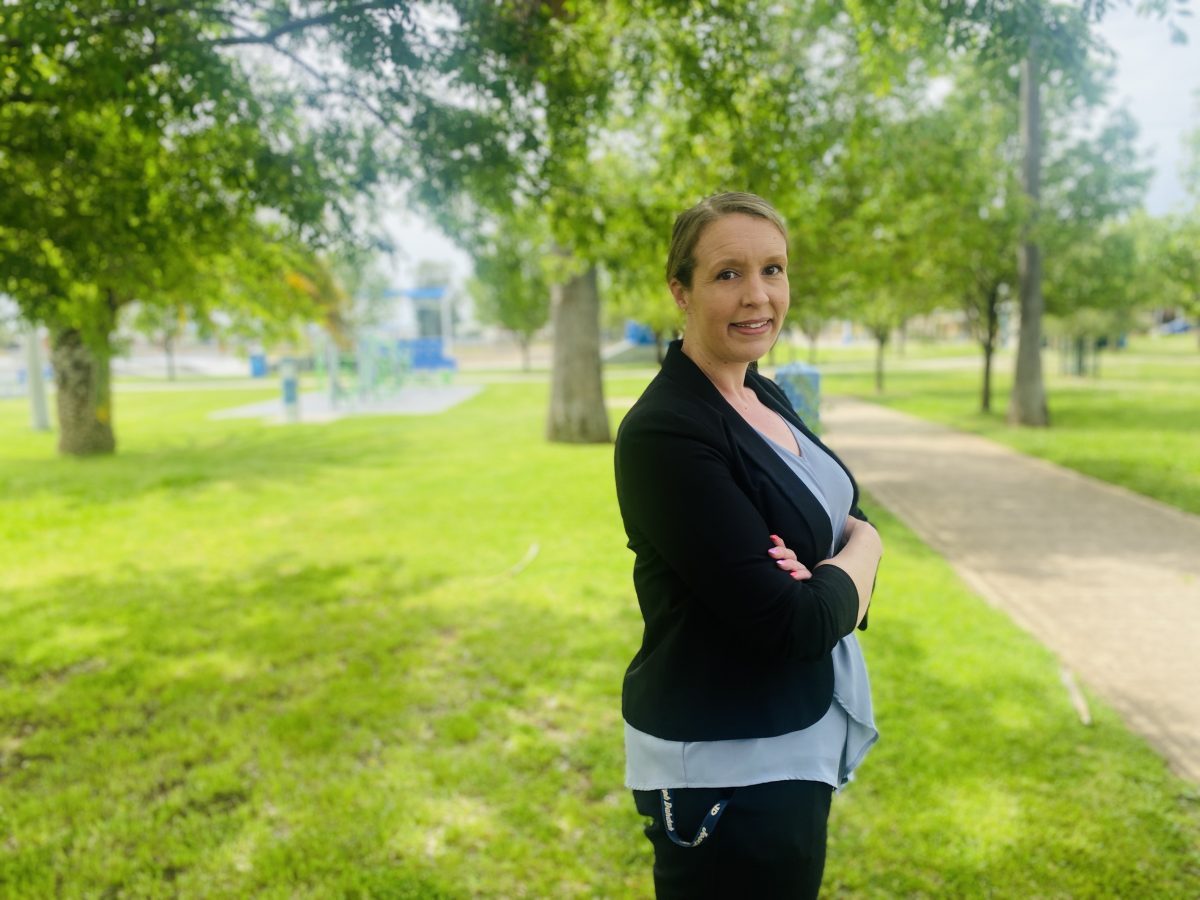
Alison Egan says the issue isn’t resolved yet. Photo: Oliver Jacques.
Leeton residents are celebrating their council’s decision to vote down a planned substantial rate rise at its monthly November meeting, following a passionate seven-week community campaign against the proposal.
But Alison Egan, the former council worker who led the public rebellion, says the matter is far from over.
In October, Leeton Shire Council conducted a series of community consultation sessions on its plan for what’s called a special rate variation – an increase in quarterly council rates much higher than what the NSW Government usually allows them to make.
At its ordinary meeting on Wednesday 23 November, the nine councillors voted on whether council should make an application to the Independent Pricing and Regulatory Tribunal (IPART) – the NSW Government authority that decides on council rate changes – for a special rate variation of 45 per cent over the next five years. When combined with regular permitted rate rises, this would equate to a rise of 65 per cent over the five years from 1 July 2023.
The motion was voted down by five votes to four. Mayor Tony Reneker, deputy mayor Michael Kidd and councillors Tracey Morris and George Weston voted ‘yes,’ while councillors Paul Smith, Krystal Maytom, Tony Ciccia, Matt Holt and Sandra Nardi voted ‘no’.
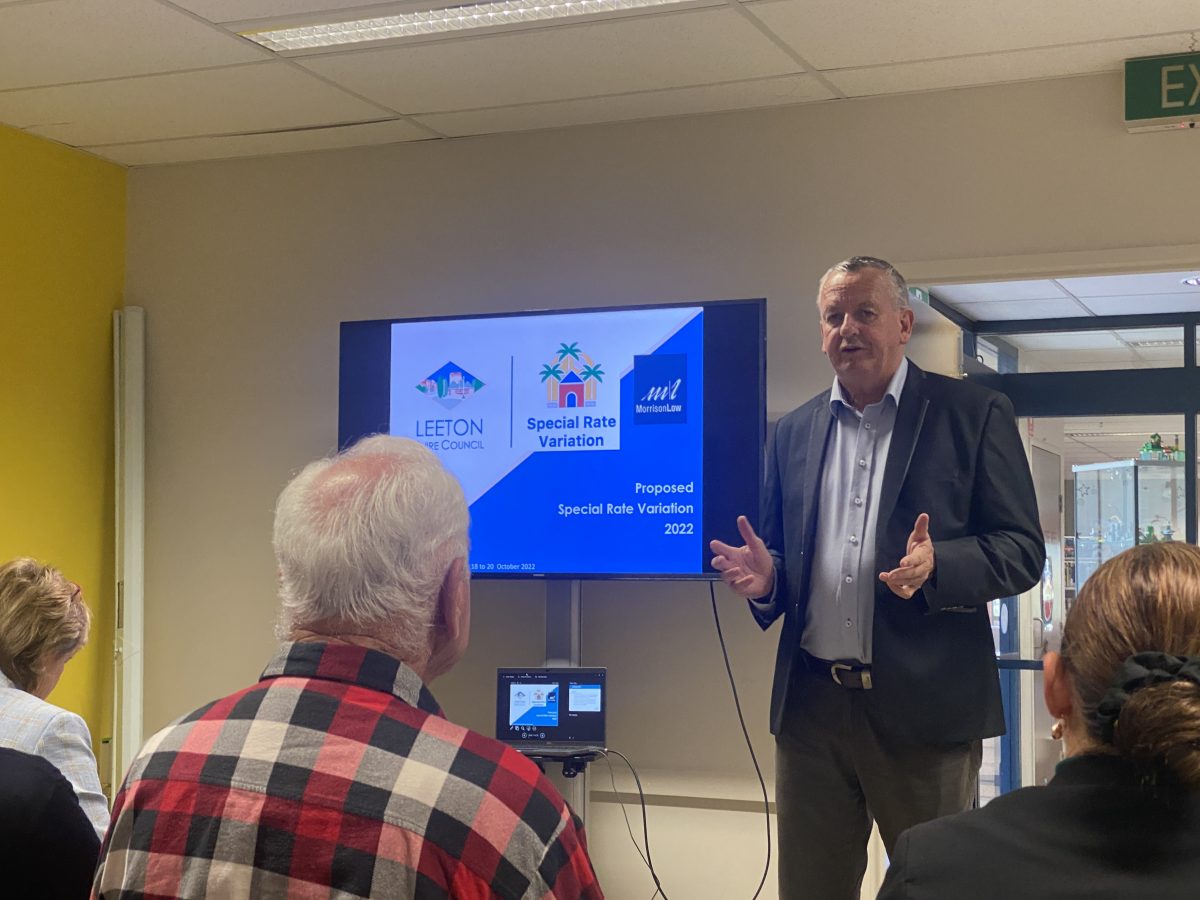
Leeton mayor Tony Reneker addresses a community information session. Photo: Oliver Jacques.
Ms Egan was pleased with the vote.
“It was a good outcome and it was how the community was keen to see the vote go,” she said. “I’d like to thank the five councillors who listened to the community and voted ‘no’.”
Ms Egan has actively opposed the rate rise since it was first proposed by educating residents over social media, digging into council documents to find answers, attending multiple consultation sessions and participating in a street protest. As a result, she was showered with praise when the decision was first announced.
“Thank you Alison Egan for being our voice and bringing all this to our attention,” was one comment typical of many on Facebook. But Ms Egan said it was a team effort.
“I’m glad lots of people have spoken up, it’s nice to see a few others out on a limb with me.”
The council received 900 public submissions on the proposal, most of which opposed the rapid rate rise. Ms Egan said without the passionate public response, the application to IPART may have gone ahead.
“I think the council underestimated how people may react and how it would impact on the community.”
But she says that while the battle has been won, the fight continues.
“It doesn’t change the fact there are a few issues to be addressed. We haven’t solved the problem.
“The council will obviously need to do something. I think there’ll be a new [proposed rate variation] in the future and they’ll also look into services … I’d like to see council review the services it provides and look at how they will be able to improve efficiencies – in all businesses there are efficiencies that can be made.”
Mayor Tony Reneker had told community consultation sessions a special rate increase was necessary because the council didn’t receive enough money to cover its costs and maintain the services it offers. He said this was due to the rising cost of materials, energy and services.
Council also claims IPART hasn’t allowed them to increase rates as much as needed in recent years, and that federal and state governments have reduced their financial support to local governments.
The council originally proposed a 52 per cent increase over two years, but this was modified to 65 per cent over five years following public feedback.
While neither option will go ahead for now, residents await further news from their council, with councillors scheduled to next meet on 14 December.
Whatever the council does, Ms Egan will be watching closely.
“I’ll continue to keep my finger on the pulse,” she said.







